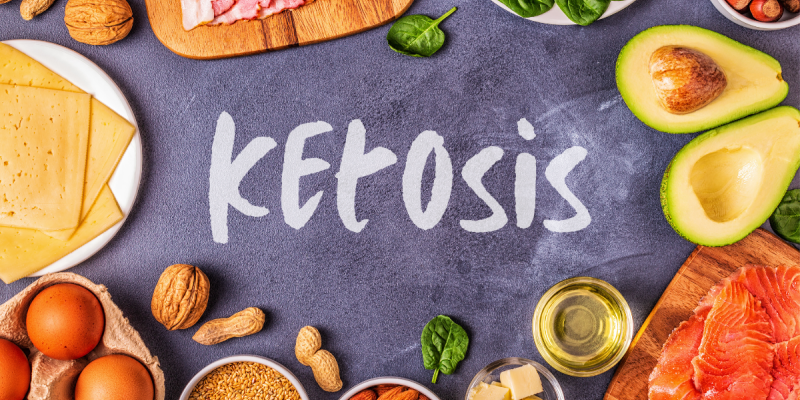A ketogenic or ketosis diet is a very low-carb, high-fat diet. Several consecutive days of the diet can put your body into ketosis, a nutritional state characterized by elevated ketone bodies in the blood and weight loss. While this diet may provide benefits, it can also be difficult to follow consistently. Some people believe that keto supplements can mimic ketosis by raising the level of ketone bodies in the blood without changing the diet. However, this is not your body’s accurate interpretation of it. This article tells you if exogenous keto supplements can help you shed excess weight.

What Happens In The Body During Ketosis?
If you follow a standard high-carbohydrate diet, your body’s cells usually rely on glucose for fuel. Glucose comes from carbohydrates in your diet, including sugar and starchy foods such as bread, pasta, and some vegetables. If you restrict these foods, such as a ketogenic diet, you force your body to look for alternative fuel sources. Your body then turns to fat as fuel, and fat produces ketone bodies when broken down in excess. This metabolic shift puts your body in a state of ketosis. Most people naturally experience a mild state of ketosis when fasting or exercising vigorously.
The two main ketone bodies produced during ketosis are acetoacetic acid and beta-hydroxybutyric acid. Acetone is the third ketone body, which is produced in smaller amounts. These ketone bodies replace glucose as fuel and provide energy for your brain, heart, and muscles. It is thought that ketone bodies themselves may be responsible for the weight loss associated with the ketogenic diet.

What Are Exogenous Keto Supplements?
Ketone bodies can be produced in your body (endogenous) or they can come from synthetic sources outside your body (exogenous). Therefore, the ketone bodies found in supplements are exogenous. These supplements contain only beta-hydroxybutyrate ketones.
There are two main forms of keto supplements:
- Ketone salts: These are ketones bound to a salt, usually sodium, potassium, calcium, or magnesium. They most often come in powder form and are mixed with liquids.
- Ketone esters: These are ketones linked to another compound called an ester and are packaged in liquid form. Keto esters are primarily used for research and are not readily available for purchase like ketone salts.
Both forms of keto supplements have been shown to raise ketone levels in the blood, mimicking the ketosis that occurs when you follow a ketogenic diet. This elevated level of ketone bodies in the blood after supplementation can be beneficial for those who want to transition into ketosis without necessarily following a diet. That said, ketone supplementation is thought to have many of the same health benefits as a ketogenic diet, including weight loss.

Exogenous Ketone Supplements Can Reduce Appetite
Keto supplements have been shown to reduce appetite, which may help you lose weight by eating less. Studies have observed that those who did not eat before taking keto supplements had higher blood ketone levels compared to those who took keto supplements. Since elevated ketone bodies are associated with lower appetite and lower gastrin levels, keto supplements may only be beneficial on an empty stomach, such as when you wake up in the morning, rather than after a carbohydrate-containing meal.
In other words, taking keto supplements after a carbohydrate-containing meal will still raise blood ketone levels, but not as high as when fasting, indicating that your body is using less ketone as fuel because there is more available glucose from carbohydrates.
Side Effects Of Exogenous Keto Supplements
Exogenous keto supplements are often considered a safe and effective way to increase ketone body concentrations, but their long-term effects are unknown. Side effects of ketone salts have been reported to be more common than those of ketone bodies, including nausea, diarrhea, and gastric upset. Therefore, it is not recommended to use ketone salts to achieve ketosis, as you will be taking in a lot of minerals.







